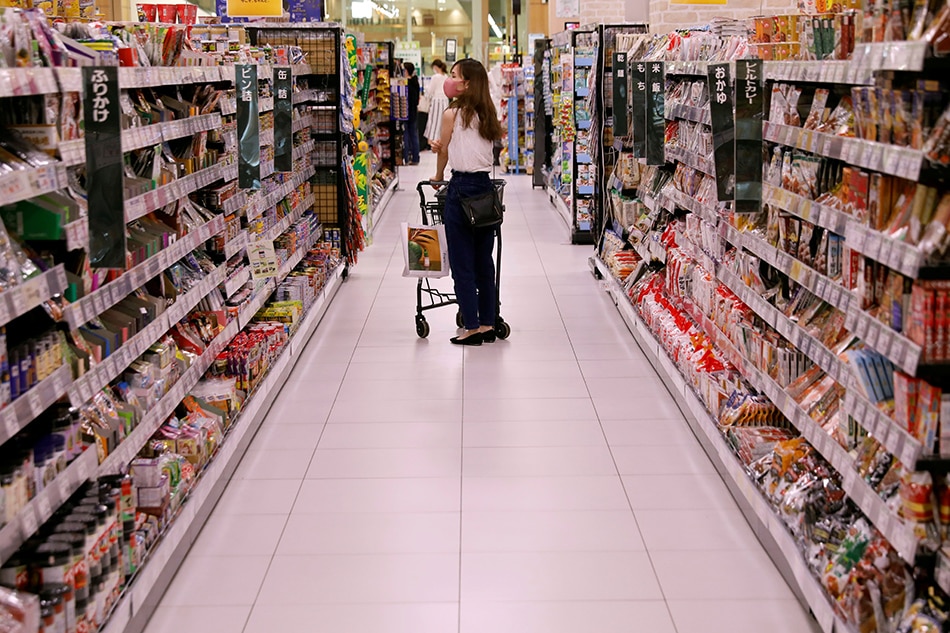Japan begins charging for plastic bags | ABS-CBN

Welcome, Kapamilya! We use cookies to improve your browsing experience. Continuing to use this site means you agree to our use of cookies. Tell me more!
Japan begins charging for plastic bags
Japan begins charging for plastic bags
Agence France-Presse
Published Jul 01, 2020 02:49 PM PHT
TOKYO — Retailers in Japan began charging for plastic bags Wednesday, a move aimed at curbing Japanese consumers' love for packaging and finally bringing the country in line with other major economies.
TOKYO — Retailers in Japan began charging for plastic bags Wednesday, a move aimed at curbing Japanese consumers' love for packaging and finally bringing the country in line with other major economies.
Shops including the ubiquitous convenience stores can decide how much to charge customers for the bags, with a common price being 3 yen.
Shops including the ubiquitous convenience stores can decide how much to charge customers for the bags, with a common price being 3 yen.
The new rule seemed to be having some effect, with one shopper telling public broadcaster NHK: "I buy things at a convenience store every morning. I knew the charge was starting so I brought my own bag."
The new rule seemed to be having some effect, with one shopper telling public broadcaster NHK: "I buy things at a convenience store every morning. I knew the charge was starting so I brought my own bag."
Visitors to Japan are often surprised by the amount of packaging involved in even the most basic of transactions -- most convenience stores wrap individual bananas in plastic.
Visitors to Japan are often surprised by the amount of packaging involved in even the most basic of transactions -- most convenience stores wrap individual bananas in plastic.
ADVERTISEMENT
The country produces more plastic packaging waste per capita than any nation apart from the United States, according to the UN, with campaigners criticizing Tokyo for moving too slowly on reducing plastic consumption.
The country produces more plastic packaging waste per capita than any nation apart from the United States, according to the UN, with campaigners criticizing Tokyo for moving too slowly on reducing plastic consumption.
With the measure, Japan has vowed to "curb excessive use of plastic and think about how to use it wisely," according to its most recent policy document.
With the measure, Japan has vowed to "curb excessive use of plastic and think about how to use it wisely," according to its most recent policy document.
Introducing a nationwide fee "is aimed at prompting people to think twice if a bag is really necessary and helping people to review their lifestyles," the government said.
Introducing a nationwide fee "is aimed at prompting people to think twice if a bag is really necessary and helping people to review their lifestyles," the government said.
In 2018, Japan vowed to reduce its annual 9.4 million tonnes of plastic waste by a quarter by 2030.
In 2018, Japan vowed to reduce its annual 9.4 million tonnes of plastic waste by a quarter by 2030.
And meeting in Osaka last year, leaders from the G20 major economies agreed to reduce marine plastic waste.
And meeting in Osaka last year, leaders from the G20 major economies agreed to reduce marine plastic waste.
Japan touts an enviable waste-management system, and the government says more than 80 percent of its plastic waste is recycled.
Japan touts an enviable waste-management system, and the government says more than 80 percent of its plastic waste is recycled.
But much of that "recycling" involves simply incinerating plastic, often to produce energy -- a process that generates carbon dioxide and contributes to climate change.
But much of that "recycling" involves simply incinerating plastic, often to produce energy -- a process that generates carbon dioxide and contributes to climate change.
According to government data, bags account for 2 percent of the total amount of plastic waste.
According to government data, bags account for 2 percent of the total amount of plastic waste.
© Agence France-Presse
© Agence France-Presse
Read More:
environment
Japan
politics
conservation
ANC
plastic bags
plastics
Japan plastics
Japan plastic bags
plastic waste
ADVERTISEMENT
ADVERTISEMENT


